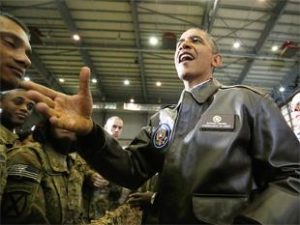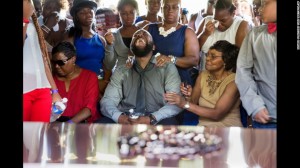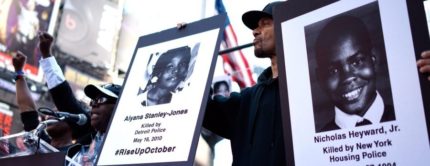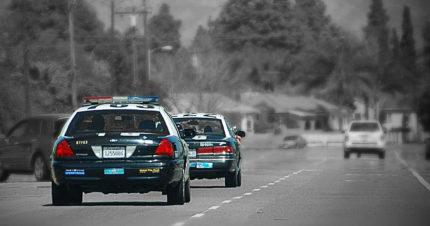
The U.S. has always been a nation that bathed in violence—from its founding on the annihilation of the native peoples and establishment of an economy born from the brutally enforced free labor of enslaved Africans, to the mind-numbingly destructive forays around the world in order to cement the hegemonic force of American global dominance.
Now that the U.S. has ended a war that has stolen the lives of 2,200 American troops and an estimated 20,000 Afghani civilians and 13,000 Afghani troops—not to mention cost $1 trillion at a time when the nation was crippled by a devastating financial crisis—the nation’s attention is again riveted to violence back home. While protests continue to rage over the killings of Black men by police, a multitude of national leaders—from President Obama all the way down to local elected officials—have focused their efforts on making sure the Black community doesn’t respond with any violence of its own. That seems to be one of the nation’s primary focuses at the moment, making sure the Black community has no more violent explosions—in other words, we’ll begrudgingly let you make noise and march through our streets, but just don’t hurt any people or property.
It is a curious message coming from the leaders of a nation that seems to specialize in violence—on American shores and beyond. And it frames the eternal paradox that has long suffocated the lives of Black people in the U.S.: As citizens of one of the bloodiest nations on earth, where murder and executions are more commonplace than anywhere else in the industrialized world, the most pressing demand that the nation makes on African-Americans is that they abstain from violence.
Never was this more apparent than during the last couple of months, when the success of a protest movement seemed to be measured by the lack of violence it engendered. And when Ismaaiyl Brinsley cold-bloodedly killed two New York City police officers, at once the legitimacy of the entire protest movement was called into question, for Brinsley had so egregiously violated the rules—even if his purported claim was to avenge two other violent deaths.
This American paradox seems forever lost on American politicians—how the nation can serve as a marauding force bringing violence around the globe, most recently in the name of the fight against terrorism, but refuse to recognize how Black people can feel terrorized by police at home in their own communities.
In making his announcement, President Obama claimed the U.S. was bringing the 13-year war to a “responsible conclusion.”
“For more than 13 years, ever since nearly 3,000 innocent lives were taken from us on 9/11, our nation has been at war in Afghanistan,” Obama said in a statement after the United States and NATO formally ended the war with a ceremony Sunday at a military headquarters in Kabul.
“We are safer, and our nation is more secure, because of their service,” he said.
But as he makes that claim, many residents in Black communities across America wonder if they are safer in their own communities than they were 13 years ago.



